Episode 166 – A Chat With Maja Benke
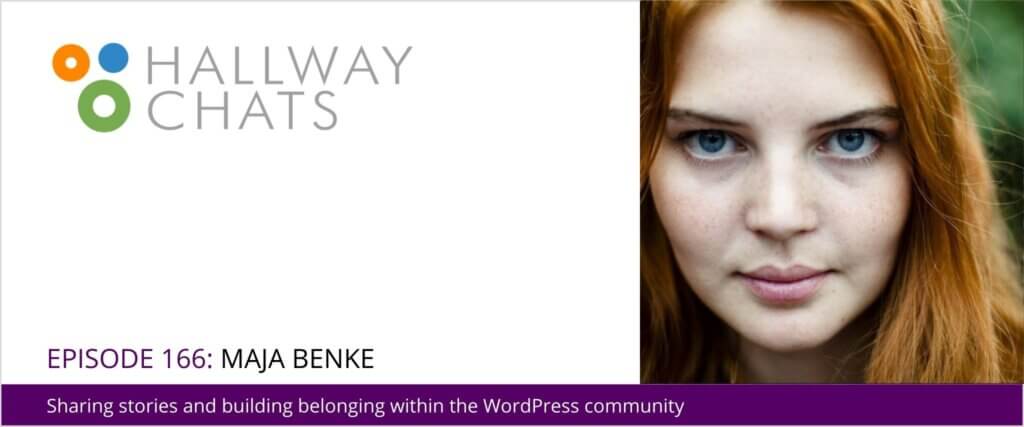
Podcast: Play in new window | Download
Subscribe: RSS
Show Notes
Contact Info:
Episode Transcript
Topher: Hey everyone! I’m Topher. Welcome to Hallway Chats. This episode is a little bit different. It’s another one that was recorded in person, so it’s just me and the guest. Last summer, I visited Barcelona and I spent about a week wandering the city and seeing the sights with Maja Benke, who was from Germany.
We basically just moved from cafe to cafe throughout the week trying food and beverages and just talking about everything. So this is a recording of one of those conversations.
Before we get started, though, I want to thank our sponsor Nexcess. Nexcess has been really great for HeroPress. Their speed is fantastic. I love their admin panel, it works great.
And they have some stuff I don’t use, but I admire tremendously. They have WooCommerce automated testing, which is kind of a big deal. Not every place has that. In fact, I don’t know of another place that does have that.
They have a great sales performance monitor, so it can help you with business decisions. And then of a plugin performance monitor, which is actually really hard to do. I know a bunch of plugins that claim to do it well, but they don’t really. The one from Nexcess does a really great job. So if you’re looking for a good host, especially with WooCommerce, checkout Nexcess, they’re great.
Alright, so let’s get on with our conversation with Maja. The scene is we were sitting in a cafe, an outdoor cafe. Every cafe in Barcelona at that time of the year had tables and chairs outside. I don’t think we sat inside any of them. So you could just walk down the street and just stop and sit and someone would come and offer you coffee. It was pretty great.
So let’s dive right in.
Topher: What I really like about that story is that it didn’t work for you, and so you were able to do something else, you know?
Maja: Yeah. I don’t know if I would have looked at it this way. I mean, it’s true. Like what I’m really glad about it’s actually… So maybe where it started was like… So I started in landscape architecture, which I really loved and really enjoyed because I really like to design. I also like, especially in terms of user experience, not just in terms of art and do pretty things, but in terms of doing design which means stuff that works for people and they’re enjoying it even in a way that maybe they not even notice that it’s actually really good design because it’s so like normal feeling in a good way.
Topher: Intuitive.
Maja: Yeah, intuitive. It’s not even look like a good design. So I really like those. And also like plants and being creative, but in an engineer way, you know, not in a blank canvas and you just put color in and you have all the freedom because it’s for me too much freedom. I like to have limits of rules. Especially in architecture, you have a lot of rules that people don’t hurt themselves using those things. So I love this a lot. But I had a lot of problems not being able to travel around.
Topher: So that’s what led you to leave that career and pick something else?
Maja: Yes. So this was the main reason. It was actually the main reason why I wanted to change the profession I had. Also, I figured out that the greatest part in being a landscape architect is not the biggest part. It’s actually the smallest part and really small, because the rest is like a lot of paperwork, a lot of like helping building the table matrix, checking that the stuff got billed in a correct way, and also changing the plans all the time.
Because there was a lot of other parties involved that you’re related to so you had to like change your plans all the time, your ideas, and… I don’t know, it was not that fun and creative as I thought.
Topher: sure.
Maja: It was too much limitation. But especially not being able to travel as much as I wanted to. Like, for one time I was working in an auto store and we had a lot of clients coming in looking for equipment for the next travel. So keep asking, “Are you travelling?” And also we were asking, “What were you going to do? What’s the weather temperature, stuff like this.” They were a lot of cool stuff. So I had a little list putting all the cool ideas on I wanted to do and my colleagues were like, “You will never have enough vacation and holiday that you’re able to do that.”
And they were like early 20. I was like, “This is too sad. I don’t want to live just to work. I want to work and then I’m able to live and do stuff.” And if even in my early 20s people already told me, “You will not…” I mean if you’re like, I don’t know, 70, and people will tell you, “Oh, you don’t have the time to do all these things,” I think it’s still critical to say that. But maybe it would be a bit more makes sense. But early 20s is like not the time to tell someone they’ll not be able to do all the stuff because they don’t have time because you will have to work so much all the time. You don’t have enough holidays.
And I found it super depressing. And I was like, “Nah, I don’t want to live like this. I really wanted to be independent just working and still work something that I’m really passionate about it because… And then not really know what it is. So after my university time, I did an internship and then I found out that I’m not really made for the office and doing this work. Even the university were really cool and creative.
So, yeah, I did Camino de Santiago in Spain, so pilgrim way, and found a lot of people who had some unusual work lives. So they were not working the classical job sometimes. I mean, a lot of them did obviously but also there were some who were just, “Yeah, I work sometimes here, sometimes there, and I live there and there.” I mean, usually it was like being a waiter or doing the kind of any job.
And thought for myself, “That would be fine. I don’t have to work at something, I don’t know, where you earn a lot of money or something if you’re not able to… Like, I don’t need to work in something where I need to do a lot of money if I’m not able to have the lifestyle I want, which was traveling and being free.
I mean, many people, I think, think money gives you the freedom, which is partly true, obviously. But it’s not freedom if you have to work so much that you can’t really use the money in the way you want. So, I get the input so I was less scared of having not a career or something. I was like, “No, for me it’s more important to be free and live on places I wanted to.”
So then I moved to Barcelona being a waitress. It was a cool way to be in Barcelona but still, it was not local independency. So I still had my shift. So when I wanted to go home for like celebration, any birthday or something-
Topher: Right, you couldn’t go.
Maja: I couldn’t go because I had shifts. So it was still not ideal, but it was good starting point. And then I was thinking, “Okay, so I like to travel, the work that it’s local independency is probably online and digital. What should it be? Traveling and digital? I don’t know, maybe a travel work.” So it was a time where I think in the English community or English-speaking community travel blogs were already pretty common. In a German community, I would say it started already.
I mean, there were a few travel blogs, they were also quite big, but they were not that super many. So it was kind of still time to get in and possibly also be able probably to do a big and have a living from it. So I was looking for a platform to do a travel blog. So I was researching how to make a travel blog, or how to make a blog. Like I had no idea from online. Really no clue.
And then I heard this WordPress thing. I was like, “Okay.” So I checked some and saw a lot of websites were using WordPress. I was like, “Okay, I mean, if you can build like this, probably I can do it as well. But we’ll see. I will try to learn how to do… I will try to manage, not even to learn, just to manage to get a blog online.” I think I needed a week to install WordPress on a server because it didn’t know how that works with domain and server, database. Never heard about that either. No clue.
And really I needed a week. It’s so funny. Looking back, it’s just so funny. I mean, now I need like, I don’t know, five minutes or maybe even more. Like half an hour probably to set everything. But I was so lost. I needed a week. Now I don’t know if I get to… I don’t know. So yeah, somehow I got the travel blog started.
I think even there was one of the starter themes. I think it was 2011 or 2012 theme. I think it was the one with the pictures that were like full… I think full width?
Topher: Yeah.
Maja: And on every page it changed, they had a different picture. But I think it was randomly or something. At least I couldn’t figure out, for a while, how to select the specific picture I want on a specific page. But I was really lost. I had to look up a lot. I don’t know.
I was a bit frustrated because I couldn’t really find any German resources for really low beginners. I mean there were explanations, but they assumed you know what FTP is and stuff like this, and I didn’t know that. So I was a little bit lost sometimes.
So I did a travel blog for like two, three years, tried to make a living from it. I was always working as a waiter besides that. During that time I also lived in England for a while. So I also was a waitress there. And I failed badly because I was really bad in social media, really bad in writing, really bad in doing the-
Topher: Travel blogging?
Maja: Yeah. I mean, travel blogging it was not that bad a thing, but it was like to get money from it, you need partnerships, for example. And I am just too shy… Or not too shy but… I don’t know. I think it’s really weird to write like a hustle, for example, and say, “Hey, I’m a travel blogger. Can I get free stuff?” I never did that.
I was always kind of incognito. So I just went there as a normal person and was writing about and recommending stuff that I thought it’s cool. Because I always thought when I’m like telling them I would write about it they would treat me differently as well. I don’t know. Also, I felt really uncomfortable doing that. So yeah, I was obviously not successful. Because if you don’t ask for trades, obviously you don’t get any trades. So yeah, it was…
Topher: What was the thing that made you say, “This isn’t working? I need to do something else?”
Maja: Well, the main thing I would say because I didn’t get any money. It was kind of a hint to me that this is not working at all. I mean, at the beginning, I thought, surely you need a while to start. Like, I don’t know, if I give you three months and thing, then you will have a lot of money, obviously, this is not working. But if it doesn’t work out after three years and also you don’t feel comfortable with the things you should do to earn money, it’s kind of also a hint that this is working out.
Topher: That’s key.
Maja: Yeah. So I was on some meetups or conferences in terms of vloggers or traveling or stuff like this and I saw how the other bloggers were doing that. They always had a camera on everything. They were always filming everything. They’re always like try to, you know, have partnerships. What’s the name for that, like partnership?
Topher: Sponsorship.
Maja: Sponsorships, things like this. And I never did that. I always felt really uncomfortable. I hated to be filmed or make pictures, put them online. I don’t know. I’m not this online person all the time. I felt weird about that. So it was kind of yeah, that’s not really my comfortable level, comfort zone.
But because I know them, the most of them, I think all of them use WordPress, and I’ve always had troubles in a technical way or design perspective for something… I mean, after I would say a year, we say in German the coin dropped—it means I felt really comfortable with WordPress and had really feeling I started to understanding it.
I mean, obviously, I didn’t know everything but if I didn’t know I could Google it, I could understand the answers like this was the crucial point at the beginning. So that understanding the answers for your question you had because they were too technical and too complicated.
So after a year or maybe one and a half years, I felt really, really comfortable with WordPress. I actually preferred working on the side instead of writing stuff and publishing stuff on social media. So I started to help my friends with their WordPress sites to fix problems, to add functionalities, to change CSS.
One day I was at meetup in Berlin for The 4-Hour Workweek. It’s a book from Timothy Ferriss that a lot of people in the digital nomad community are big fan off. And this is how many people started. And I was there. And we had a guy in front making a talk about like he’s having… It was not so much about local independency, but about how to make business with less effort.
And he said he has a WordPress agency, but he didn’t know anything about it or doesn’t know anything about WordPress. This was actually his opening line. And I’m sitting there and I’m like, “What? What a scam!” He was super self-confident. He said, “I always use the same template and just change a little bit of colors, put the pictures, different tags and then there’s a website.” Obviously, he did a bit more. I mean, yeah. I saw the website, they were not too bad. They were not like the best I’ve ever seen. But they were not that bad. But I think in technical terms they could have probably better websites than those.
And I thought, “Okay, I probably know more about WordPress than this guy and he has an agency and make a living from WordPress, and I’m not.” And it was like, “Fuck that, maybe you should…” You have cut out the fuck that.
Topher: Do you know the movie with Gru?
Maja: No.
Topher: It’s the bad guy who adopts the three little girls as cartoon?
Maja: No.
Topher: There’s a one point where somebody is getting something right and he goes, “Light bulb.”
Maja: Oh, okay. It was a moment like this, but it’s just more… I mean, also in terms of our idea that actually even if you haven’t learned proper IT stuff, you could do maybe websites. But also in terms of what if the man just making even a talk about it that he actually doesn’t know what he’s doing but he makes money from it. You know, having like the balls. I don’t know how you would say it in a nice way in English.
Topher: Confidence.
Maja: Yeah, having the confidence to just do that instead of that you actually kind of know this stuff, but you still think you’re not good enough. I was like, “You know, maybe I should just have the confidence to start.” So I had an idea maybe I do that but first like getting a bit better. So I gave myself a couple more months and made really a lot of research like how… like in all the ways. I mean, I already know a lot of stuff because I secured my own website, for example. But I was like, “I want to be on a better level if I do this for other people.”
So I learned a lot of about security, usability, design trends, CSS, HTML, what kind of templates are good or not. Obviously, at the beginning, I didn’t have really the best clue.
Topher: The what?
Maja: The best knowledge.
Topher: Oh, yeah, yeah.
Maja: I mean, obviously, I grew during the last few years. So for the first two clients’ website, I was looking online someone who does like an NGO or volunteering thing needs a website, and I would do it for free to learn also the workflow with the client and to see if that actually works out. And in terms of it doesn’t, you know, you could say, “Okay, I’m sorry, I can’t.”
But it actually worked out pretty well. The clients were super happy. I learned also a lot about how to interact with clients, how to do project management. I mean, everything’s still beginning level. But, you know, I started slowly. At the beginning, I was more like fixing problems with WordPress. It was not comfortable.
I mean, the first two projects were actually complete websites but then also were sometimes smaller stuff. I think it was like 2013, 2014, something like this. In 2015, was my first WordCamp. It was quite of a happy accident how I went there.
Topher: Which one was it?
Maja: Cologne 2015.
Topher: Okay.
Maja: Really good WordCamp. Really liked it. I went there with a lot of confidence and thought, “I know a lot about WordPress,” and then I really… You say “I came to the ground”? Is that a good sentence?
Topher: Came to the ground.
Maja: That is a German sentence expression. So I thought I know a lot about it. Obviously, I was not an expert or something. But I thought I know my stuff. And then I went there and have the title of the talks I couldn’t even… Just from the headline, I couldn’t understand what it’s about because it was so specific and I didn’t have any idea. It was like, “Oh, wow, yeah, no, no, I’m not there yet.”
Topher: What was the main language of the WordCamp?
Maja: German.
Topher: German.
Maja: I don’t know if we even had English talks, actually. I don’t know if we had any English talks. But I went to the community. Also, I got talked in to go to the contributor day, where I choose the wrong team immediately because I choose themes, which was a cool theme. I thought it’s about design but it was actually about coding and I’m not a developer. So a completely wrong team for me.
But they were also super nice and not judgmental or something that I choose the wrong team. So they encouraged me to go to polyglot, so I hopped there. And it was kind of the starting point to going on a higher levels of knowledge in terms of WordPress. Like I started contributing slowly.
I mean, I needed a couple WordCamps, couple of contributor days that I founded the teams I really wanted to participate in and learn. Like couple months later I were in Utrecht in Netherlands in 2015 also on WordCamp. And during the Contributor Day, Rian Rietveld made a workshop about accessibility problems in WordPress, and I were really impressed.
I heard about accessibility because of landscape architecture and also, when I was younger, I was really interested in are people with disability is solving the challenges. So it was always, for me, an interesting topic. Like I learned braille when I was 14, for example, use it as a secret written language with my friends.
And also this is a really interesting field. I was really passionate about it because it would help a lot of people to use the web. I mean, at this time, I already knew that WordPress. I think it was like 27% of the web, or something, or 30%. I mean it’s getting higher every year but it was already… I mean, it was a lot of websites.
And there were some core problems like, Wow, like this is actually affecting so many websites in the world in core? We should change that. So this was, I don’t know, just thinking about I could solve something, even if it’s a tiny thing but for so many websites made me really excited. And I thought it’s really important, so I was really passionate about that. So I became part of the accessibility team. At the beginning, obviously, I just had to learn a lot of stuff. This is nothing you can learn overnight or something.
The most of the team were developers they were discussing a lot of technical problems. And I thought, “Wow, this is mind blowing. This is so complicated and you have to know so much.” But I was really comfortable with design because I had a design education, also UX thinking. I learned that. And for me, accessibility is like a wider range of UX.
So I opened a lot of tickets in terms of accessibility problems in design, like color contrast, for example, or information like color only for Core, but also a lot for meta, like for the websites the WordPress community presented. So this was how I started contributing with accessibility. And contributing to the WordPress community gives you a big push in knowledge in WordPress.
And I always had the needs to get better because I never wanted to be a kind of a scam or something. I really wanted to provide the best service I can and I’m able to and if I don’t, you know… And I think the most important lesson in WordCamps I had directly on my first WordCamp, to know what you don’t know. Because if you have never looked into other fields, you don’t know your limits, you don’t know where your knowledge limit ends or what some stuff is really important and you should consider.
For example, I don’t to any online shops. Not because I could not do that, but I know there’s a lot of things you really should know in terms of usability, web flow, for paying, for example, also. The law is really, especially in Germany, quite strict on stuff like this. And also the technical… sometimes it’s not that easy to set up. So I think it’s good if people are specialized in this. And to say, “Okay, just don’t do that because I’m not specialized in it. So the outcome would be maybe okay, but not really good.”
Topher: Right.
Maja: And I think this was a really important lesson in the WordCamp community to have a look in other fields, have maybe basic overview.
Topher: It’s okay.
Maja: So this was a really important lesson to know what you don’t know and to know people who does know that and then maybe ask them for help and collaboration. If you have a project that you need that or just give it to them. And also the other way around. I mean, now I do accessibility since 2015. Couple years… like continuous learning?
Topher: Continue learning.
Maja: Continue learning in the field. So now I’m really passionate about it. And actually at the beginning when I was working the Camino de Santiago, I never never thought I will ending up be a digital accessibility consultant and having the life I wanted to have at this point. It was actually really nice as, you know, the whole like travel blogs thing and wanted to work remotely and being able to travel started in Barcelona.
In 2022, I moved back to Barcelona for a couple months to having this lifestyle and it was for me really special feeling being back here and living it and also doing something that I really enjoy. For me, it’s really nice because first it’s also challenging. So it’s not boring. It’s not something, Okay, you know that and now you do for the rest of your life every day the same.
Topher: Right.
Maja: I think it would be too boring for me. So it’s still always a challenge and you still really have to learn all the time new stuff. It’s a complicated field sometimes. But also I think it’s really important what I do. So even if it’s really hard times, especially accessibility is not always easy to do or to test or to work on, but I know that… For me, it’s really important. So that’s why I’m not really getting tired of it. And I think I will never do.
I never thought I would find something where I thought I could do this for the rest of my life. And also like creating websites and designing them and then sometimes testing websites is a good mix of being creative but also doing things that’s really fun. I mean, also having nice website is really important. But that they’re also accessible, I don’t know, I think it’s also really, really important because over 20%, 25% of the world population needs accessible web. And it’s a lot of people actually.
Topher: It is a lot of people. So to be clear, you found your career as an accessibility person because you joined the accessibility team, as opposed to the other way around? Were you already interested in accessibility and then found the team?
Maja: Well, I was not specifically looking for that. I was always interested in accessibility, I think, because I don’t know… I don’t really know. I was like, why I was so interested in that?
Topher: But you weren’t making a living at it yet when you found the team, right?
Maja: No. No, not at all. I thought I would never be that good that I could do that actually. I was more like at this time, she did a talk at the workshop at 2015 in Utrecht. There were a problem with the loop on the [ACF?] side so the “read more” links were not accessible. Like for screen readers they were not accessible.
And I thought, “Okay, so the loop is the main function of WordPress. This is how it started and this is still the main thing, and this is not accessible? What the fuck?” Yeah, I wanted to solve that? I mean, now it’s solved because of some really smart people found a solution.
I think I opened a ticket for that and other people solved it. I mean, Rian kind of pointed out, but I think there were no ticket. But I don’t really… I mean, maybe it was Rian. I have to look this up actually who opened the ticket. I don’t know if I did it or somewhere else. But I thought, “This is not good that this is not accessible and also why it is not accessible.”
I mean, that’s for me the saddest thing that accessibility is something an afterthought or not even a thought at all. And to fix something it’s way harder than have it at from the beginning. Yeah, no, I was more passionate about to make it usable for other people who couldn’t use it instead of having like… I never thought making a living out of it. I was more I’m doing web design or doing UX.
And thinking about doing a living or working with accessibility just maybe last three years, because, you know, I’d say it’s a complicated field. I think it’s important that you really understand the user groups and have really a deep understanding and knowledge and keep learning. Like not to think, “Oh, now I’m accessibility consultant and I’m CPACC certificated person, so now I know everything.” This is completely wrong, especially… Like also by people with one disability are super different. So you have to keep listening and learning.
I don’t know, I now learned really for pretty long time I didn’t thought making a living from it just like contributing to WordPress to make WordPress more accessible because this was my area where I could change something. I’m not in politics, for example, so I can’t change their stuff. But I can change things that’s in my range of things. And accessibility in WordPress is something I could improve by contributing. So I thought more like this.
I mean, then after a while, I get better in it. Also, they’re not that many accessibility consultants or specialists. I mean, there are way more developers or SEO persons than accessibility people. And I think it’s too bad because we need them. Also, we need to educate developers and designers and content creators, and project managers. So it can’t just be up to the accessibility consultant.
So this is maybe why I’m doing this because there’s a need. And for me, it’s important to change it. Not that much because it’s such a great work to do, actually. Like to design websites is more fun than testing website for accessibility, but it’s important.
Topher: So one of the questions that I always use as a foundation when people say, “What are your essays about?” I say, essays are about how WordPress enabled you to live the life you want. And what I’m hearing is the life you wanted was to be able to move freely around the world. And the career you’ve chosen as an accessibility consultant lets you do that.
Maja: Yeah. And I do something I’m passionate about and I think it’s important. And I think this is really, like for me, but I think also for a lot of other people-
Topher: It’s true.
Maja: ….this is really important that if you go to work every day, and maybe even on time, so it’s not a good time maybe or where it’s like, I don’t know, especially as a freelancer, sometimes you have like rough time, but to know why you do that, like to know your why it’s so important.
Topher: That’s so good. So know your why.
Maja: And for me, it’s a really strong why. Like first time in contributing in WordPress, you don’t get money. I don’t get money for that. Maybe some people get to sponsor, but I don’t. And still I was for sometimes investing a lot of hours in contributing because for me it was important.
And even now I’m really, really sad that not everything in WordPress is accessible. Even we have a team for so long and… I mean, obviously it’s not that easy, but still it could be better. And that is a bit frustrating as well. But still, you know, we keep fighting. So yeah.
Topher: That’s really cool.
Maja: Actually, my dream is to make the WordPress world more accessible. Like I don’t have the impact on other communities because I’m not there but my dream would be to find a way that all the plugins, all the themes, or at least the things in the directory are accessible and especially the Core. I mean, the Core back end and also front end has to be accessible in my opinion because there are rules over the world where for example, NGOs or public sites are only allowed to use accessible software. Also for other stuff, not only the front end. So I think it’s important that WordPress is accessible in every term.
Topher: That’s really cool. Thank you for what you do.
Maja: Thank you.
Topher: This has been an episode of Hallway Chats, a part of the HeroPress Network. This episode was recorded in person in Barcelona, Spain. Your host was Topher DeRosia. We’d like to thank Sophia DeRosia for the music, and Nexcess for hosting our network. If you liked this episode, please subscribe and mention us on social media.
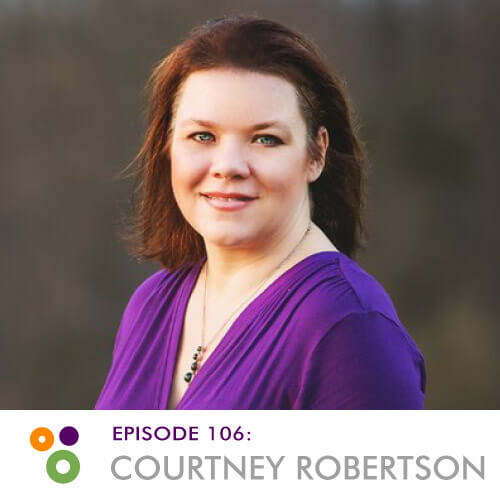
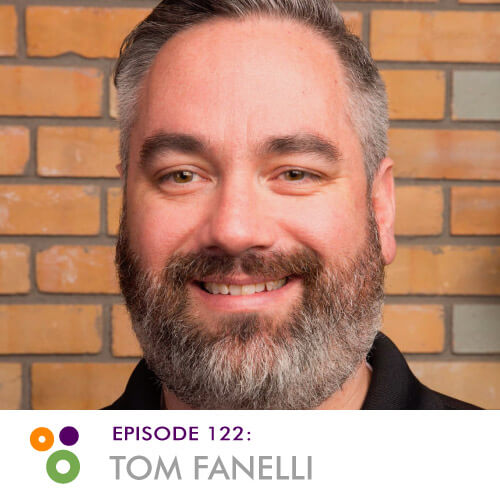
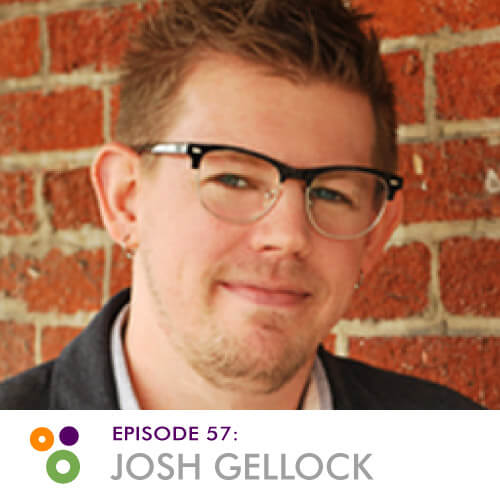
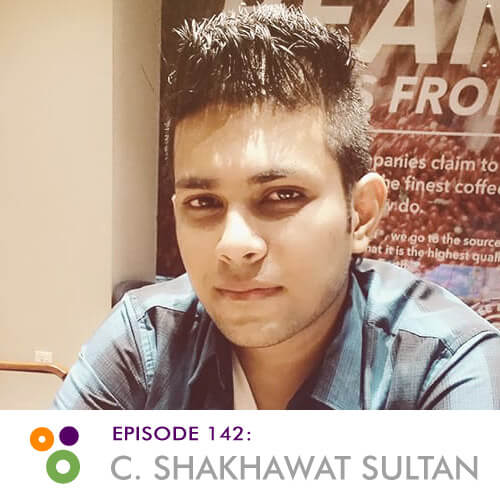
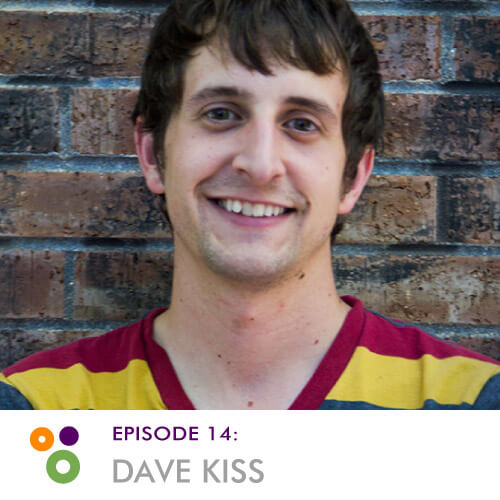
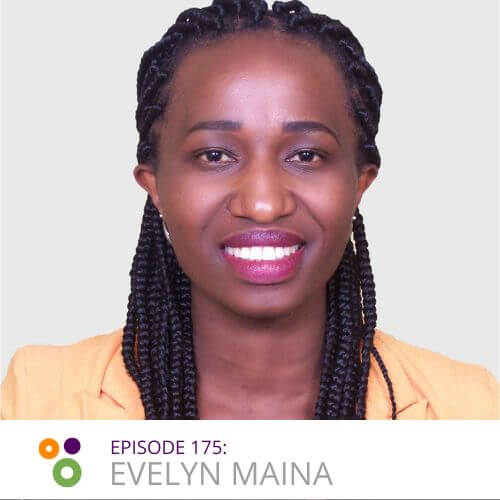
Hiiii Maja,
I enjoyed listening, beautiful, thank you so much for sharing.
Listening to you reminds me of what got me into WordPress.
Keep rocking.